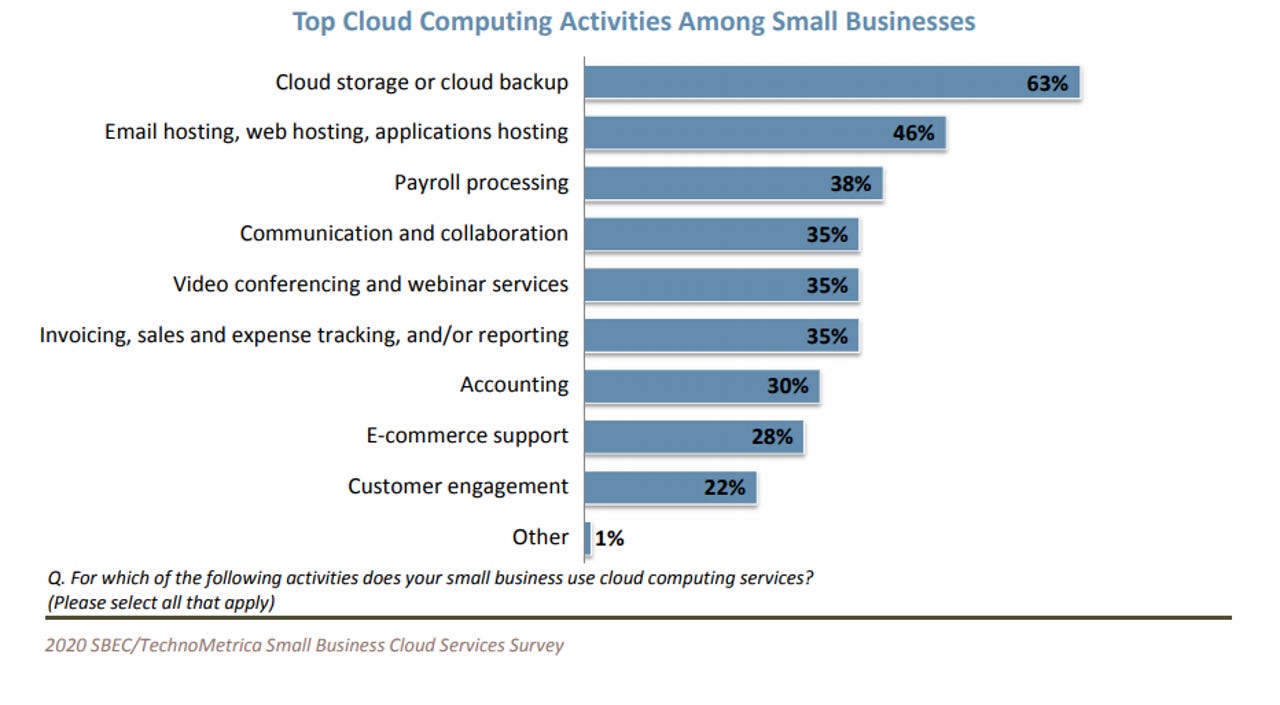
ZDNET Multiplexer
mul-ti-plexer-er. noun. A device, in electronics, that synthesizes disparate data signals into a single, uniform output. ZDNET Multiplexer merges various perspectives, media types, and data sources and synthesizes them into one clear message, via a sponsored blog.
ZDNET Multiplexer allows marketers to connect directly with the ZDNET community by enabling them to blog on the ZDNET publishing platform. Content on ZDNET Multiplexer blogs is produced in association with the sponsor and is not part of ZDNET's editorial content.
Cloud as a small business utility
Small businesses are the backbone of economies across the globe. In fact, firms with fewer than 20 employees account for 89 percent of businesses in the US.
Just like any other enterprise organization, though, small businesses must stay agile and innovative in order to compete. Technology is a primary driver of innovation and agility, but small operations usually don't have the time, human resources, or funds to experiment with different tools and products. That's where cloud services have proven to help companies transform digitally without the burden of IT infrastructure costs.
The global pandemic in 2020 was a stark reminder of the importance of not only digitizing workflows for small businesses, but also the urgent need to incorporate some cloud services into the mix in order to stay fully operational no matter where workers are located.
Cloud technologies give small businesses the ability to access essential data and files from a non-traditional office base – whether home or remote – while helping to boost productivity, save time and money, and improve collaboration.
In a 2020 survey released by the Small Business and Entrepreneurship Council (SBE Council) small businesses overwhelmingly believed that the costs of these services should be qualified for loan forgiveness under the Paycheck Protection Program (PPP), just like other eligible essential costs such as utilities, transportation, and rent.
The 300 small business respondents stated that cloud services were an essential tool for operating their businesses and critical to their survival during the COVID-19 crisis. About 74 percent of respondents said that their core business offering would be unable to operate without the use of cloud services. And 79 percent said that cloud services have helped their businesses communicate more effectively with and better manage their customers amid COVID-19.
These small businesses were using cloud technology for everything from storage and backup (63 percent); email hosting, web hosting, and applications hosting (46 percent); payroll processing (38 percent); and communication and collaboration; video conferencing and webinar services; plus invoicing, sales expense tracking, and reporting (35 percent each).

Cloud services and solutions offer small business users resources that can be turned on and off as required, and paid for based on usage. Even though that sounds significantly more cost-effective than purchasing hardware, there are still some pitfalls to watch out for. When evaluating cloud service packages, make sure you calculate how much you'll be paying for each unit of storage, how easy or difficult it will be to migrate data and applications to the cloud, and whether there's any cost to retrieve data once it's stored in the cloud.
The three main cloud-storage service options are:
Public: Cloud service is built on an external platform run by the provider. With this off-site service, users get their own virtual resources within a shared infrastructure.
Private: A private cloud service is a cloud platform built within your own walls, using your hardware and software. This requires an IT team to manage.
Hybrid: A combination of on-premises and cloud resources. In a hybrid system, an organization's own IT team balances management and maintenance of the environment with the service provider.
At least one of the following cloud solutions may suit your organization, helping reduce the need for capital expenditures on software, hardware, and maintenance:
Infrastructure-as-a-Service (IaaS): Online services that replicate underlying IT infrastructure like physical computing resources, location, data partitioning, scaling, security, backup, and so on. Instead of a server or storage drive on-premises, you point to the same resources in the cloud.
Platform-as-a-Service (PaaS): A category of cloud computing services that allows customers to provision, instantiate, run, and manage a modular bundle comprising a computing platform and one or more applications.
Software-as-a-Service (SaaS): Software licensing and delivery model in which software is licensed on a subscription basis and hosted centrally. Examples include email and CRM tools.
Disaster Recovery as a Service (DRaaS): This category of solutions uses cloud resources to safeguard and protect applications from disruption and loss, often by providing 'failover' resources when on-premises equipment suffers an outage.
The beauty of cloud technology is that as small businesses scale up, the cloud services and platforms can also be scaled to their needs. And when a small business is confident enough of the technology they are using, they can explore advanced applications like AI and machine learning while relying on cloud resources to handle the heavy workloads.
Dell Technologies Advisors can help you learn about infrastructure options and services, so you can focus on growing your business. Call at 1-855-404-4427 or Chat Now.